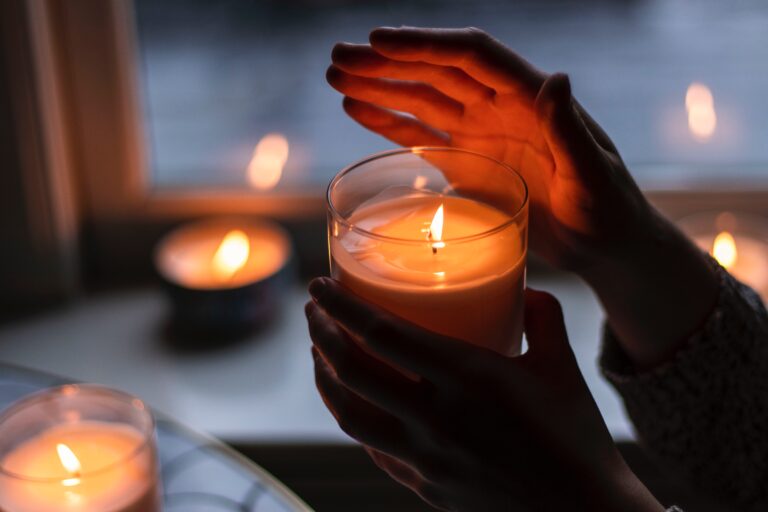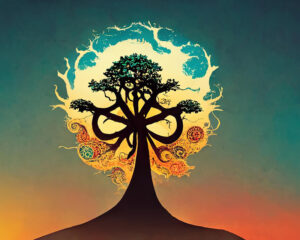ICPPD Distance Learning Certificate in Bereavement and Loss – 45 CPD Hours – 6 months duration.
Thank you to Niamh who for permission to use her beautiful reflection to give you a glimpse into the course. Commence at any time and complete at your own pace!
The course was first suggested at work as a possible project for the nursing team to complete. Working as a mental health nurse practitioner my job often brings me into contact with individuals grieving after the death of someone close. Particularly since the events of the Covid-19 pandemic and the associated changes to the traditional ways in which we mark our grief. While the area of bereavement and loss has always interested me, my enthusiasm for completing the course was twofold. Personally, I am someone who knows all too well the intense pain of losing someone I love. Although the acute state of mourning subsides, I continue to experience a wide range of emotions that come and go over time. I had completed the first unit of the course when I was informed that I would no longer meet the criteria for funding as I had moved positions within the organisation where I work. I was disappointed with the news, but I was keen to continue as having already engaged with the course material I knew was on a journey of self-discovery. Therefore, I decided to personally self-fund the course, a decision I am so very glad I made!
One of the benefits of the course was the fact that it could be completed in my own time and at my own pace. This was always highlighted when I received the course material and relieved any pressure to complete the tasks quickly, meaning I could relax and engage with the material and associated tasks. The tasks allowed me to write freely and from the heart. Without the requirement for academic referencing, I could convey my thoughts and emotions more clearly. Writing in this way was just like having a meaningful conversation with a friend. I progressed through the tasks in my own time. I was not reading the material to complete the tasks but rather I was consumed by it.
Within the first unit the book “Tuesdays with Morrie” held my attention from start to finish. I continue to recommend it to fellow readers. There are so many important life lessons within the story. The one I hold closest is to forgive ourselves, and not get stuck on regrets. I often return to the pages of this book for comfort. It helps me to think about things differently and has improved my outlook. Within this unit it was enjoyable and thought-provoking to speak with my father-in-law about death and dying practices around the world and how the Irish funeral rite has changed over the years. He seemed to really enjoy the long chat too! Whilst some of the old practices have died out, there are many remnants of older traditions in the modern Irish funeral. One fact remains that the funeral remains a vital community ritual in Irish society. Reflecting on the restrictions imposed by Covid-19, when the cap of 10 at funeral attendance did not even include immediate family, I see how this denied many people an important part of the grieving process that helps provide a great deal of closure. Hopefully we never have to go back to that. Funerals and the associated practises play a vital role in the grieving process and hopefully the pandemic has not forever changed funerals in Ireland.
Writing for me is a way to make sense of the world. I enjoy journaling and have always considered it to be a very private thing to do. Writing about my experiences of loss knowing that somebody else would be reading it, was at first challenging, but somehow challenging soon turned to comforting. Expressing myself in this way helped to lift a burden, one I didn’t realise I still carried. Thus far, I considered death rituals to be the things we do in public or with family members to commemorate the loss of a loved one, however, it’s clear now that the most important rituals surrounding death may be the things, we do within our own hearts to heal from a loss. While at times I did feel some pain and sadness immediately after writing, I also felt great healing in the time that followed. Engaging with the course material I found comfort in the stories shared, I suppose it provided a reassurance that I am not alone in what I am thinking and feeling.
Prior to engaging with the material within unit 5 oddly I had not considered the loss associated with a relationship breakup in the context of a grief reaction. It seems that grief following such a loss is generally less noticed and less acknowledged. This is something I will be acutely aware of in my future nursing practice as I provide support to individuals who require support at a time of crisis in their lives. Often this may be following a relationship loss, which for many is a very stressful event. Many of these disenfranchised losses can have a profound impact on a person’s psychological functioning and may be just as painful and traumatic as losing a loved one through death. Indeed, following a romantic break up for example, suicide is viewed as the only solution for some. Now equipped with the knowledge that how we cope at the end of a relationship is dependent on many factors, such as our personality, supports around us, our mental health but most importantly our style of attachment can only improve the quality of my interventions with clients. Having gained an understanding of complicated grief and the treatment options available I am equipped to provide support and signpost individuals to the appropriate services available.
What touched me most within the course material was the amazing work of Van Gogh accompanied by the beautiful Don McClean song Vincent. Each time I engage with the piece it evokes the same deep emotion that leaves me frozen in time.
On a personal level the course has journeyed me through my own life experiences of grief and loss. I have worked through some intense emotions to reach a place where I can say I have healed a great deal. While there will always be days, I feel great sadness I know that these feelings are OK. Reflecting on my experiences of loss and taking the time to nurture myself has deepened my sense of what it means to be alive. On a professional level the knowledge I have gained alongside my own personal self-refection will positively influence the quality of my interactions with clients.








